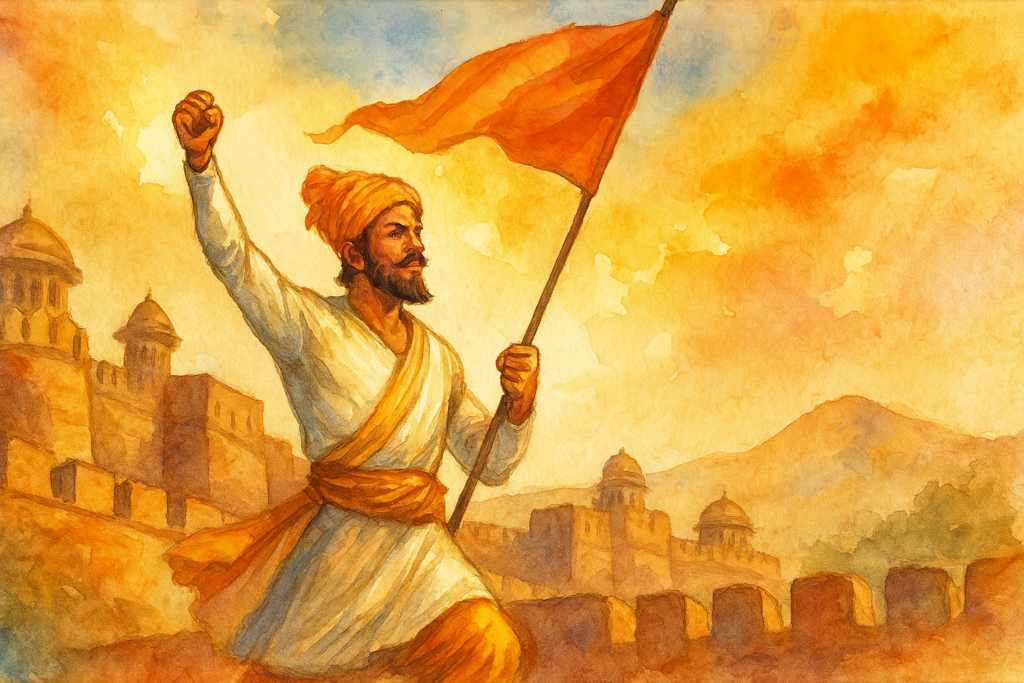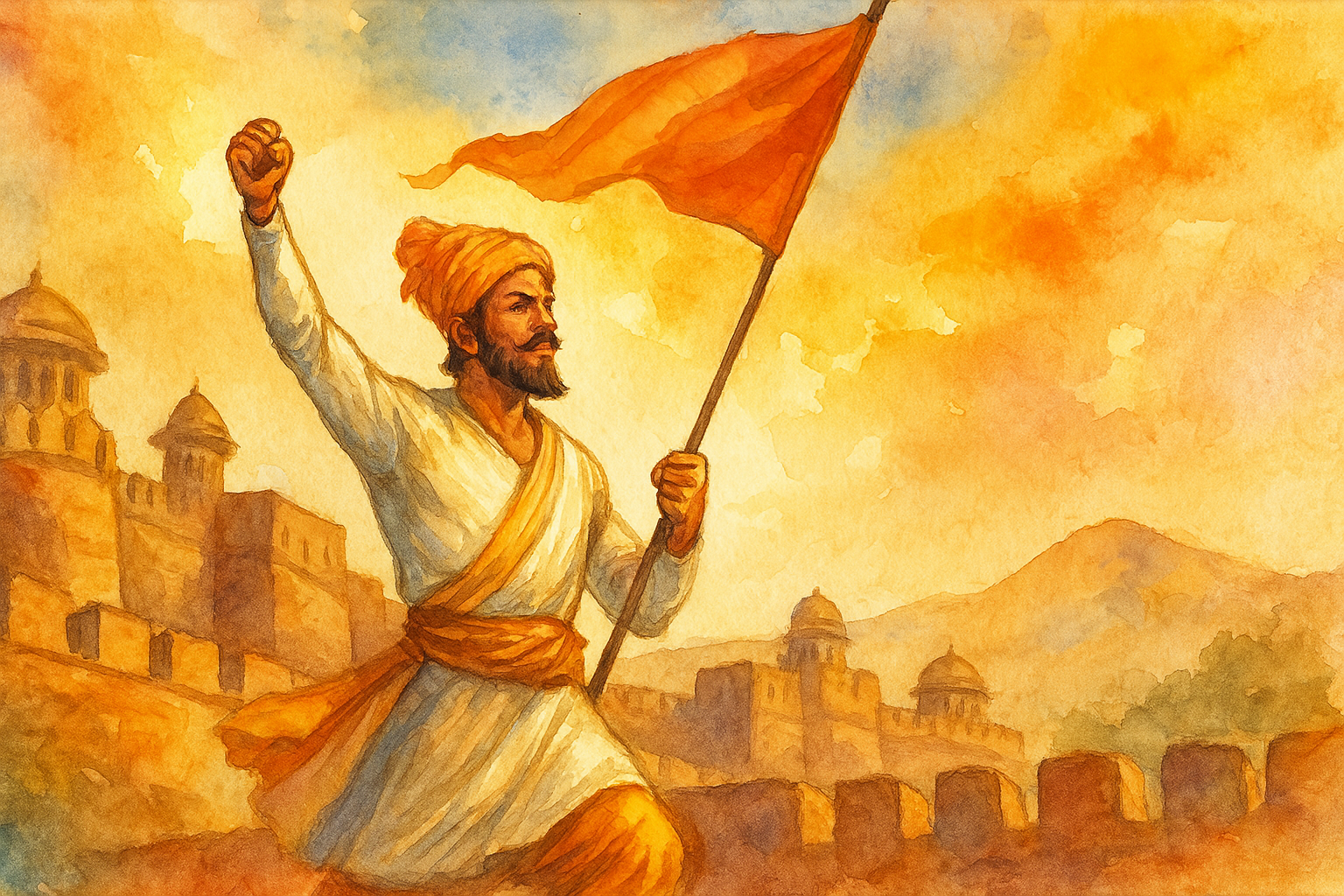Introduction
Indian history is a vast tapestry woven with tales of perseverance, wisdom, and courage. From the valiant warriors who fought for their land to the sages who passed on profound philosophies, there’s an incredible wealth of inspiration that can fuel personal growth. Have you ever wondered how lessons from the past can help shape the future? By diving deep into the pages of history, we can uncover stories that speak to resilience, leadership, and transformation—lessons that remain timeless in their relevance.
In this post, we’ll explore some key events, figures, and philosophies from Indian history that offer powerful insights for personal development. Whether you’re facing challenges in your personal life or striving to achieve new heights, these lessons can serve as a guiding light to fuel your journey.

Table of Contents
- Lessons from the Indian Freedom Movement
- Ancient Philosophies for Modern Life
- The Wisdom of Indian Rulers
- Personal Growth Through Cultural Contributions
- Practical Tips to Apply These Lessons in Your Life
Lessons from the Indian Freedom Movement
The Indian freedom struggle is one of the most significant chapters in history, and its key figures offer some of the most profound lessons on resilience and perseverance. Leaders like Mahatma Gandhi, Jawaharlal Nehru, and Subhas Chandra Bose led millions toward a common goal—freedom from colonial rule. But it wasn’t just their strategies or politics that set them apart; it was their unwavering belief in the power of collective action and self-belief.
- Mahatma Gandhi’s Path of Non-Violence: Gandhi’s philosophy of Ahimsa (non-violence) teaches us the power of peaceful resistance. In a world that often prioritizes aggression, Gandhi’s teachings remind us that true strength often lies in restraint and compassion. Embracing calm and measured responses in challenging situations can bring long-term benefits, both personally and professionally.
- Subhas Chandra Bose’s Fearlessness: Known for his bold and fearless attitude, Bose advocated for independence at any cost. His journey reminds us that sometimes, the road to success requires taking risks, stepping out of comfort zones, and challenging the status quo.
- The Power of Unity in Diversity: The freedom struggle was fought by people of all regions, religions, and backgrounds, united by one common cause. This collective effort teaches us that when we come together with a shared purpose, we can overcome even the most formidable obstacles.
Ancient Philosophies for Modern Life
India’s philosophical legacy, particularly from ancient texts like the Vedas, Upanishads, and Bhagavad Gita, offers valuable wisdom for contemporary life. These philosophies teach us about self-realization, mindfulness, and the pursuit of inner peace—qualities that are essential in today’s fast-paced world.
- The Bhagavad Gita’s Teachings on Purpose: In the Bhagavad Gita, Lord Krishna teaches Arjuna that it is important to find one’s dharma—one’s true purpose in life. By aligning our actions with our deeper values and purpose, we can achieve both personal fulfillment and a sense of service to others.
- Mindfulness from Yoga and Meditation: Ancient yogic practices emphasize the importance of self-awareness and the power of the present moment. In a world filled with distractions, incorporating mindfulness through meditation and yoga can significantly improve mental clarity, emotional stability, and overall well-being.
The Wisdom of Indian Rulers
Indian rulers throughout history have demonstrated remarkable leadership qualities that are worth emulating. Figures like King Ashoka, who ruled during the Maurya Empire, and Rani Durgavati, the warrior queen of Gondwana, offer unique lessons on leadership, governance, and moral responsibility.
- Ashoka the Great’s Transformation: Ashoka initially ruled with an iron fist but underwent a significant transformation after the bloody Kalinga war. His shift toward peace and Buddhism offers a powerful lesson in personal growth and redemption. No matter how far one has strayed, there is always room for change, growth, and a commitment to bettering oneself.
- Rani Durgavati’s Courageous Leadership: Rani Durgavati’s courageous defense against the Mughal invasion shows the importance of determination and unwavering leadership, even in the face of adversity. Her strength as a ruler reminds us that we all have the inner strength to overcome life’s obstacles with dignity.
Personal Growth Through Cultural Contributions
India has a rich history of contributions to art, literature, science, and spirituality. From the mathematical genius of Aryabhata to the architectural brilliance of the Taj Mahal, Indian culture encourages creativity and intellectual growth. Drawing inspiration from these milestones can help you tap into your own potential.
- Learning from Indian Mathematicians: Ancient Indian mathematicians made groundbreaking contributions that still influence modern science. Understanding their methods, such as those used in the concept of zero, can inspire us to approach problems with innovative thinking.
- The Healing Power of Indian Art Forms: India’s diverse artistic expressions, including dance, music, and painting, offer healing and therapeutic benefits. Whether it’s through the rhythmic beats of a tabla or the graceful movement of Bharatanatyam, engaging with these art forms can enhance creativity, mindfulness, and emotional well-being.
Practical Tips to Apply These Lessons in Your Life
Now that we’ve explored the invaluable lessons from Indian history, let’s look at some practical steps for incorporating them into your life.
- Set Clear Intentions and Purpose: Just like the great leaders and philosophers of Indian history, set a clear purpose for yourself. Whether it’s in your career, relationships, or personal growth, knowing your purpose helps you stay focused and committed.
- Embrace Resilience in the Face of Challenges: Life’s challenges are inevitable, but how we respond defines us. Take inspiration from the leaders of the Indian freedom struggle who fought tirelessly for a cause. Stay resilient, and you will see your perseverance pay off.
- Incorporate Mindfulness Practices: Take a few minutes each day to meditate or practice yoga. This can help reduce stress, increase focus, and improve overall mental health. Start small, and gradually make mindfulness part of your daily routine.
- Cultivate Compassion and Non-Violence: Gandhi’s principle of non-violence can be applied in many aspects of life, including how we communicate with others. Practice empathy, patience, and understanding, and you will notice positive changes in your relationships.
- Learn from Past Mistakes and Transform: Like Ashoka’s transformation after the Kalinga war, recognize that growth comes from learning, evolving, and taking responsibility for past actions. Forgive yourself, and move forward with a renewed commitment to personal development.
References
- The Bhagavad Gita – A spiritual and philosophical dialogue between Lord Krishna and Prince Arjuna that discusses life, duty, and the importance of self-realization.
- Mahatma Gandhi: The Story of My Experiments with Truth – A firsthand account of Gandhi’s life, philosophies, and commitment to non-violence.
- Rani Durgavati: The Warrior Queen of Gondwana – A historical account of the life and bravery of Rani Durgavati.

